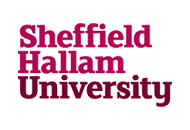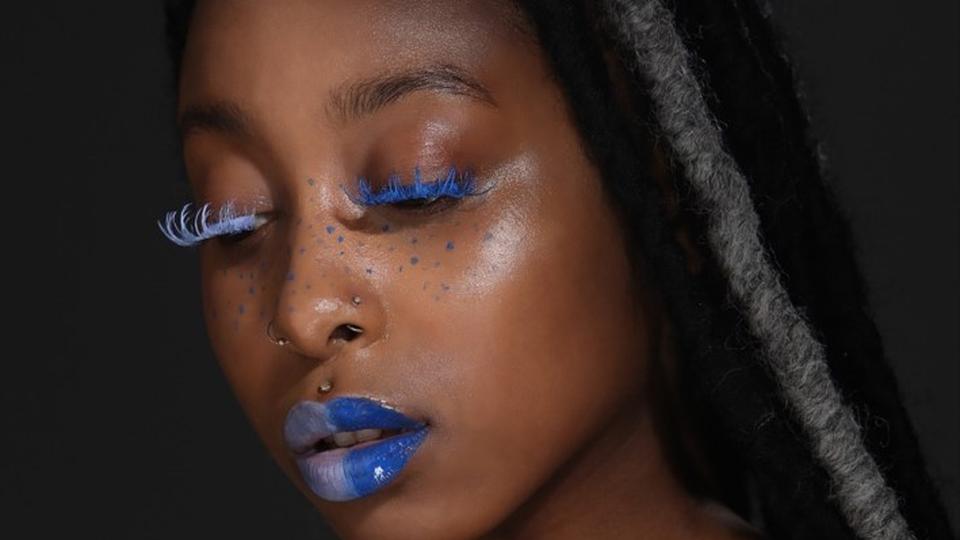Make-Up Artistry
Foundation Degree (FdA)
Leaflet Code: CR26780FT
UCAS:3M77
Overview
Train as a qualified make-up artist and equip yourself with the skills for success within the media make-up industry, with the unique programme design, excellent industry reputation and alumni success of our Foundation Degree in Make-Up Artistry.
Extremely focused on practical work and experience, you’ll learn a wide variety of make-up application techniques, developing and honing your makeup artistry talent and expanding your understanding of vital hairstyling skills for a successful career in the Editorial, TV and Film industries.
You’ll benefit from student input into the course, a host of work-based learning opportunities and the ability to promote yourself, and an established reputation for producing talented, creative and highly motivated Make-Up Artists. With many creative employment opportunities in Manchester, you’ll thrive in a range of roles in theatres, film companies, photography studios, agencies, cosmetic companies and freelance work.
- City Campus Manchester
- Full Time
- 2 years
- September 2025
Awarding Partner:

Staff profile
Supported by industry experience, our staff are all exceptionally dedicated to their subject related field, highly qualified and industry trained.
The Make-up Artistry team are all industry-based practitioners, using their industry contacts to present high profile work experience opportunities and placements to students like you.
Academic Entry Requirements
• 64 UCAS Tariff Points
• Full level 3 qualification
• If English is not your first language, you will need an IELTS score of 6.5 with a minimum of 5.5 in all skills, or equivalent.
• We strongly recommend that all applicants have GCSE English Language and Mathematics grades A*-C or level 9-4.
Non-Academic Entry Requirements
Applicants are asked to share a portfolio of work demonstrating your skills within your chosen field. Your portfolio will be reviewed by a member of the curriculum team.
You will also be invited onto campus for an Applicant Day where you will have an orientation of the campus and course resources and meet the curriculum team, you will also have the opportunity to ask any questions about the course you have applied for.
Mature applicants (aged 21 or over) who are able to demonstrate relevant skills or knowledge gained in employment or vocational activity will be considered and may be invited to interview.
UCEN Manchester is unable to consider international applications due to UKVI regulations.
What will I be studying
Year 1: Design Development for the Make-up Artist (20 credits)
Year 1: Historical Concepts Hair/Make-up (20 credits)
Examine how historical references influence the innovation of hair and make-up trends, exploring various eras and creating design concepts in line with the expectations for both ‘Media’ and ‘High Fashion’ pathways.
Year 1: Introduction to Design Concepts (20 credits)
Year 1: Professional and Academic Development (20 credits)
Complete your own contextual study, learning independently, building your own personal skills and enhancing your communication abilities.
Year 1: Studio Practice (20 credits)
Year 1: Styling for the Make-Up Industry (20 credits)
How will I be assessed?
You’ll be assessed via a range of methods that could include:
• Presentations
• Practical Assessments
• Learning Journals
• Portfolios
• Written Projects
• Work-related employment
• Blogs
You’ll be required to complete study hours within college and self-directed study.
You are expected to undertake a minimum amount of work-related learning hours with the encouragement of engagement in further experience.
Fees, Finance and Funding
There are two main costs you will have whilst studying and if you are a home student studying on a full-time course, you can apply for student finance to cover both of these:
Your tuition fees for each year of your course.
Help with your living costs e.g. rent, food, clothing, course materials, entertainment.
You can find more details, including the actual tuition fee charged on our Fees, Funding and Finance Page.
Learn moreCourse Associated Costs
You are required to buy or have the equivalent kits; airbrush, Special Effects Make-up, Hair, brushes, sculpting tools
(Order forms for kits are given to students within welcome packs prior to September, prices for these items vary each year, estimated cost of these items is around £600).
All students are subject to UCEN Manchester’s Terms and Conditions from the date they accept an offer to study here. The UCEN Manchester Admissions Policy and Procedure can be found here.

